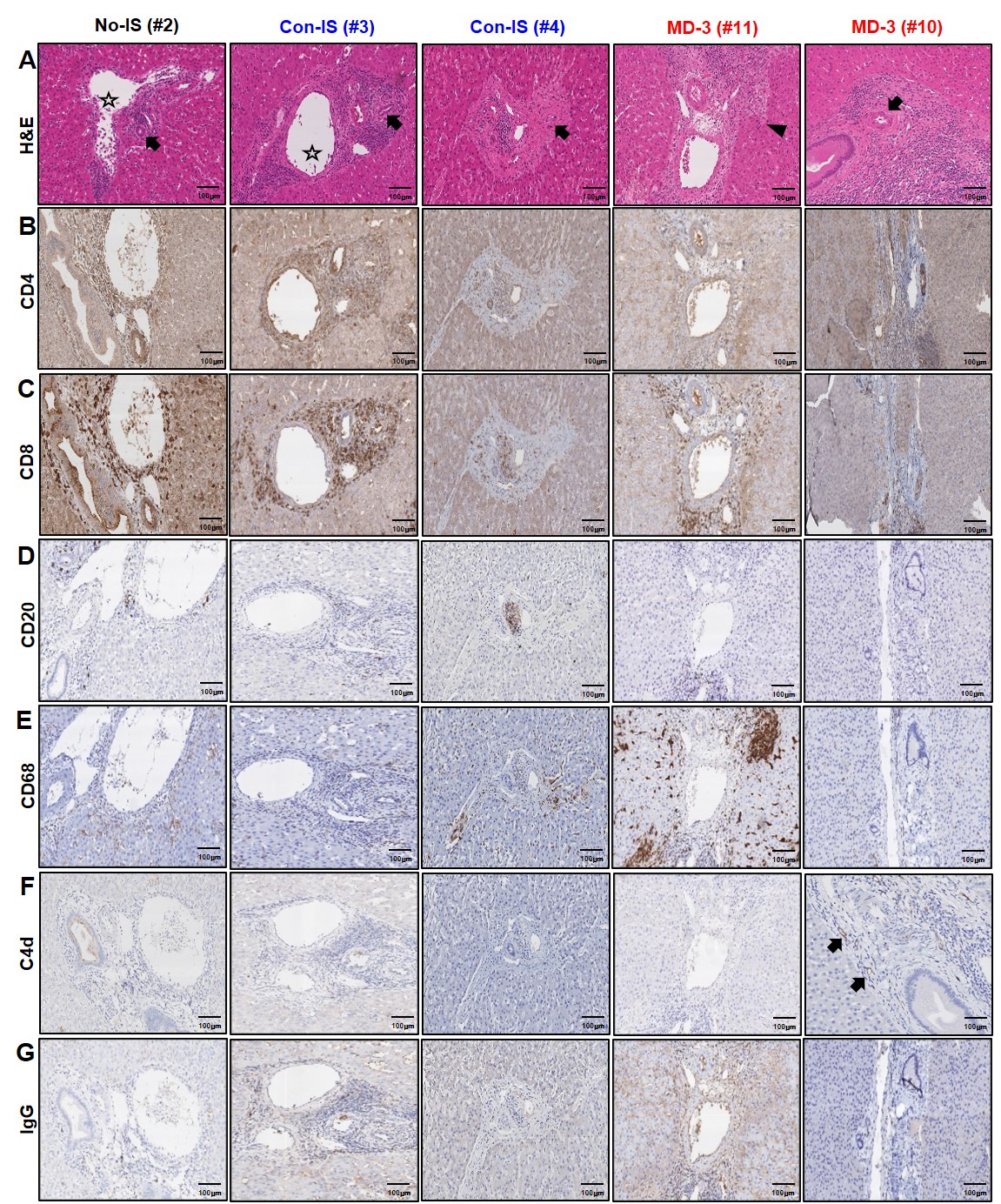Short-term Therapy with Anti-icam-1 Monoclonal Antibody Induced Long-term Liver Allograft Survival in Non-human Primates
1Surgery, Seoul National University College of Medicine, Seoul, Korea, Republic of, 2Biomedical Research Institute, Seoul National University College of Medicine, Seoul, Korea, Republic of, 3Microbiology and Immunology, Seoul National University College of Medicine, Seoul, Korea, Republic of, 4Pathology, Seoul National University College of Medicine, Seoul, Korea, Republic of, 5Medicine, Seoul National University College of Medicine, Seoul, Korea, Republic of
Meeting: 2021 American Transplant Congress
Abstract number: 446
Keywords: Antibodies, Liver transplantation, Primates, Tolerance
Session Information
Session Time: 7:30pm-8:30pm
 Presentation Time: 8:10pm-8:20pm
Presentation Time: 8:10pm-8:20pm
Location: Virtual
*Purpose: Tolerance induction remains challenging following liver transplantation and the long-term use of immunosuppressants, especially calcineurin inhibitors, leads to serious complications. We aimed to test an alternative immunosuppressant, a chimeric anti-ICAM-1 monoclonal antibody, MD-3, for improving outcomes of liver transplantation.
*Methods: We used a rhesus macaques liver transplantation model and monkeys were divided into three groups: no immunosuppression (n=2), conventional immunosuppression (n=4), and MD-3 (n=5).
*Results: Without immunosuppression, liver allografts failed within a week by acute rejection. Sixteen-week-long conventional immunosuppression that consisted of prednisolone, tacrolimus, and an mTOR inhibitor, prolonged liver allograft survival; however, recipients died of acute T cell-mediated rejection (day 52), chronic rejection (day 62, 66) or adverse effects of mTOR inhibitor (day 32). In contrast, 12 weeks-long MD-3 therapy with transient conventional immunosuppression in the MD-3 group significantly prolonged the survival of liver allograft recipients (5, 96, 216, 412, 730 days; P = 0.0483). MD-3 effectively suppressed intragraft inflammatory cell infiltration, anti-donor T cell responses and donor-specific antibody with intact anti-cytomegalovirus antibody responses. However, this regimen ended in chronic rejection.
*Conclusions: In conclusion, short-term therapy with MD-3 markedly improved liver allograft survival to 2 years without maintenance of immunosuppressant. MD-3 is therefore a promising immune modulating agent for liver transplantation.
To cite this abstract in AMA style:
Hong S, Han D, Lee S, Kim J, Hwang E, Kim H, Lee J, Hong K, Han E, Cho J, Lee J, Choi Y, Lee K, Yi N, Yang J, Suh K. Short-term Therapy with Anti-icam-1 Monoclonal Antibody Induced Long-term Liver Allograft Survival in Non-human Primates [abstract]. Am J Transplant. 2021; 21 (suppl 3). https://atcmeetingabstracts.com/abstract/short-term-therapy-with-anti-icam-1-monoclonal-antibody-induced-long-term-liver-allograft-survival-in-non-human-primates/. Accessed February 18, 2026.« Back to 2021 American Transplant Congress


